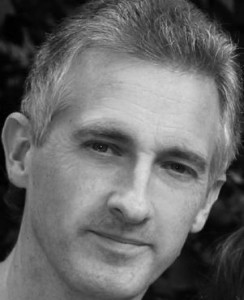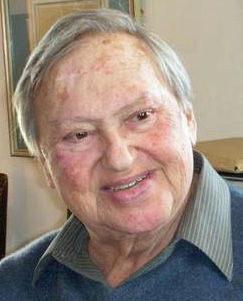
Die Fledermaus is an operetta composed by Johann Strauss II to a German libretto by Karl Haffner and Richard Genée, which premiered in 1874.

Joseph Louis Wilfrid Pelletier, was a Canadian conductor, pianist, composer, and arts administrator. He was instrumental in establishing the Montreal Symphony Orchestra, serving as the orchestra's first artistic director and conductor from 1935 to 1941. He had a long and fruitful partnership with the Metropolitan Opera in New York City that began with his appointment as a rehearsal accompanist in 1917; ultimately working there as one of the company's conductors in mainly the French opera repertoire from 1929 to 1950. From 1951 to 1966 he was the principal conductor of the Orchestre Symphonique de Québec. He was also a featured conductor for a number of RCA Victor recordings, including an acclaimed reading of Gabriel Fauré's Requiem featuring baritone Mack Harrell and the Montreal Symphony Orchestra and chorus.

Douglas Francis "Frank" St. Leger was a British-American conductor of Indian birth. During the 1930s he served three seasons as music director of the Houston Symphony Orchestra.

Blanche Thebom was an American operatic mezzo-soprano, voice teacher, and opera director. She was part of the first wave of American opera singers that had highly successful international careers. In her own country she had a long association with the Metropolitan Opera in New York City which lasted 22 years. Opera News stated, "An ambitious beauty with a velvety, even-grained dramatic mezzo, Thebom was a natural for opera: she commanded the stage with the elegantly disciplined hauteur of an old-school diva, relishing the opportunity to play femmes du monde such as Marina in Boris Godunov, Herodias and Dalila."

Richard Hageman was a Dutch-born American conductor, pianist, and composer.
Edwin McArthur was an American classical music conductor, pianist and accompanist. From 1935 until his retirement in 1955 he was the usual accompanist of the Norwegian soprano Kirsten Flagstad.
Brenda Boozer is an American mezzo-soprano who has had an active international career performing in operas and concerts since the mid 1970s. She was a member of the Metropolitan Opera in New York City for 11 seasons.
Jeanette Scovotti is an American coloratura soprano.

Mildred Miller is an American classical mezzo-soprano who had a major career performing in operas, concerts, and recitals during the mid twentieth century. She was notably a principal artist at the Metropolitan Opera from 1951 through 1974. In 1978 she founded the Opera Theater of Pittsburgh, serving as the company's Artistic Director through 1999.

Betty Allen was an American operatic mezzo-soprano who had an active international singing career during the 1950s through the 1970s. In the latter part of her career her voice acquired a contralto-like darkening, which can be heard on her recording of Sergei Prokofiev’s Alexander Nevsky with conductor Eugene Ormandy and the Philadelphia Orchestra. She was known for her collaborations with American composers, such as Leonard Bernstein, Aaron Copland, David Diamond, Ned Rorem, and Virgil Thomson among others.
Paul Alexander Theodore Ulanowsky was an Austrian-American pianist, accompanist, vocal coach, and music educator of Austrian Jewish and Ukrainian-Jewish descent. He began his career as the pianist for the Vienna Philharmonic from 1927 to 1935. He then embarked on a long career as an accompanist, notably enjoying a particularly close relationship with soprano Lotte Lehmann during the last fourteen years of her career. He played in concerts with many of the world's best singers and instrumentalists during the 1940s and 1950s.

John Douglas was an American conductor, voice teacher, vocal coach, and accompanist.
Martha Lipton was an American operatic mezzo-soprano.
Patrick Summers is an American conductor best known for his work with Houston Grand Opera (HGO), where he has been the artistic and music director since 2011, and with San Francisco Opera, where he served as principal guest conductor, 1999–2016.
Herbert Wilson Beattie was an American operatic bass and voice teacher.

Martin Johannes Sebastian Isepp was an Austrian‐born British pianist, harpsichordist, conductor and teacher. He had an international career, and worked with leading singers for several decades. Among those with whom he performed were Janet Baker, Hugues Cuénod, Hans Hotter and Elisabeth Schwarzkopf. For more than forty years he was associated with Glyndebourne Festival Opera, and he held posts in opera houses and music academies in Britain, continental Europe and North America.
Hermann Weigert was a German vocal coach, pianist, and conductor. He was a vocal coach and accompanist for the Metropolitan Opera for thirteen years. Recognized as an authority on the works of Richard Wagner, he served as a consultant to the Bayreuth Festival from 1951 until his death four years later. He was the husband, accompanist and, voice teacher of Swedish soprano Astrid Varnay, whose career he managed to international success. He also served as accompanist and vocal coach for soprano Kirsten Flagstad for many years.
George Schick was a Czechoslovakian conductor, vocal coach, accompanist, and music educator. He served as accompanist for Richard Tauber on his 1946/7 tour of North, Central and South America, also for Elizabeth Schumann, including what proved to be some of her last recordings in New York in 1950. He is particularly remembered for his work as an opera conductor, notably serving on the conducting staffs of the Metropolitan Opera and the Prague State Opera. He spent the latter years of his career serving as the President of the Manhattan School of Music from 1969-1976.

The Metropolitan Opera Gala 1991 was a four-hour concert staged by the Metropolitan Opera on 23 September 1991 to celebrate the 25th anniversary of its opening night in its second home at Lincoln Center. It was televised by Cablevision, and issued by Deutsche Grammophon on Laserdisc and VHS videocassette in 1992 and on DVD in 2010.
Laurel Hurley is an American soprano who had an active performance career in the mid 20th century. She performed a diverse repertoire from musical theatre, operetta and opera; encompassing roles in the lyric soprano and coloratura soprano repertoire. While most often heard in works from the standard opera canon by composers like Mozart, Puccini, and Verdi, she was not afraid to tackle unusual works; performing in the United States premieres of Thomas Arne's Comus, Gluck's Paride ed Elena, and Darius Milhaud's Médée. Her performances and recordings in operas such as Bellini's La sonnambula and I Capuleti e i Montecchi, and Rossini's La Cenerentola and The Barber of Seville contributed to the Bel canto revival movement of the 1950s.










